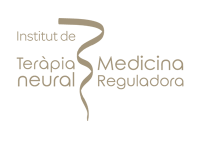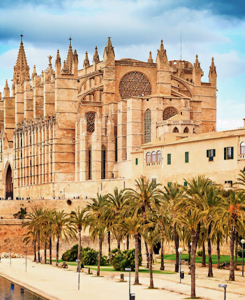Liver Detox Foods
11 Minutes
We enjoy a carefree way of living. It’s only that not everyone can afford it. Some of us can’t drink because we’re concerned about our liver. When it comes to detoxifying your liver, alcohol isn’t the only thing you should avoid. Additionally, your liver’s health might be jeopardized by a variety of other foods. If you have fatty liver disease, many of these can even be fatal. Likewise, many foods help detox the liver.
To begin, we will take a look at how the liver detox works, and in the process, we will recommend certain fruits, vegetables, and other foods that cleanse the liver and kidneys.
As the name suggests, liver cleanses or the process of liver detox is meant to remove toxins from the bloodstream through various methods, including supplements and teas, and essential oils.
The liver serves as the body’s primary organ for removing waste and toxins. It breaks down fatty fluids in our bodies and aids digestion by producing bile juice.
You can do this by enhancing the health of your liver, monitoring the indicators to confirm that your liver detoxification is working, and evaluating what you consume regularly.
What are the best foods for healing the liver? What foods should you avoid while undergoing liver detoxification?” These questions will be answered as we go along.
Over 500 tasks in our body are carried out by the liver, which is constantly working to keep us fit and functional. It serves as our body’s natural purification system.
Most people don’t realize that our livers are fully capable of self-cleansing. External cleaning mechanisms aren’t necessary.
Preserving and improving the health of our liver is the primary goal of liver detoxification or cleansing.
Is this possible? At the proper time and in the right amount, we follow the 3-day liver cleanse meal plan to the letter.
In addition to adhering to a healthy diet, it is critical to abstain from eating anything unhealthy. A liver cleanse requires avoiding certain foods.
Maintaining a healthy liver demands a lot of care and accuracy when it comes to what you eat. We’ll get back to you as soon as we can.
A liver detox can be done in a variety of ways, including the following:
Dietary Supplements
It is possible to cleanse your blood and liver by taking dietary supplements that help remove toxins from your system.
This type of vitamin acts as a radical, removing dangerous chemicals from your bloodstream.
When it comes to liver detoxification, we are fortunate since nature has given us a plethora of possibilities. Turmeric, garlic, leafy vegetables, lukewarm lemon water, amla, liver cleanse tea, green tea, and coffee are just a few of the numerous healthy foods to choose from.
Keeping Off Toxic Foods
Your entire liver health is at risk if you eat diets high in added sugars, processed products, or alcohol. Read on to know in detail about foods that you need to avoid when doing a liver detox.
A Juice-based Diet
Juicing is a great way to keep your liver in tip-top shape. The liver advantages of juice diets are supported by numerous studies.
A popular 10-day green smoothie liver detox challenge is one in which participants drink only green smoothies for the duration of the challenge.
Vitamin C and Potassium are abundant in a variety of juices, including orange and beetroot. The best way to get rid of pollutants from your body.
Staying hydrated
In terms of detoxing your body, drinking lots of water is by far the most common and most efficient method. A lack of hydration can cause a variety of problems for the liver. As a result, it’s critical to stay hydrated at all times during the day.
Make your water more hydrating and detoxifying by sprinkling a touch of lemon into it.
While there is no such scientifically proven term as “detox liver diet” or liver cleansing foods, there are certain foods that can help your natural liver detox process.
Cruciferous vegetables—If you were advised as a kid to “eat your vegetables,” odds are you had at least a handful of them. Cruciferous vegetables, which include broccoli, cabbage, and Brussels sprouts, are high in nutrients such as vitamins C and K, as well as carotenoids. They also include chemicals known as indole-3-carbinol and sulforaphane, which have been shown to benefit liver health.
Clinical investigations have indicated that indole-3-carbinol promotes liver function and a healthy inflammatory reaction by stimulating liver detoxifying enzymes, which aid in the removal of pollutants.
Green tea—If you’re stressed, try the relaxing effects of green tea which is antioxidant-rich to find your zen.
Green tea includes catechins, especially epigallocatechin-3-galate (EGCG), which are antioxidant chemicals that have been demonstrated to benefit overall health. In one clinical trial, 17 patients had 700 ml of green tea containing >1 g of catechins per day for 12 weeks, which helped battle oxidative stress while also promoting liver health and a balanced inflammatory response.
Leafy greens—When you were instructed to eat your vegetables, chances are you were also told to consume leafy greens like kale, spinach, and parsley. But hopefully all of that convincing paid off, and they’re now a part of your healthy lifestyle. Leafy greens are nutrient-dense vegetables that include chlorophyll, as well as a variety of healthful vitamins and minerals and powerful antioxidant capabilities. What is the significance of this? In an animal study, chlorophyll was discovered to assist improve the liver’s ability to detoxify.
Wild—time It’s to go nuts over nuts! Due to their high fiber and fatty acid content, nuts as part of the Mediterranean diet helped maintain healthy insulin response and already-healthy cholesterol, and even helped maintain a healthy weight, according to clinical research of over 4,500 individuals. While all of these nuts are good for you, walnuts are especially good for your liver since they are high in omega-3 and omega-6 fatty acids, as well as polyphenol antioxidants. They’re also noted for their neutral flavor, which makes them a fantastic addition to salads or a quick snack.
Olive oil—Aside from being a mainstay of the Mediterranean diet, olive oil is an excellent source of good fats and is believed to promote healthy liver enzymes. It also protects the liver by combating oxidative stress, promoting a balanced immune response, and promoting a healthy insulin response. While it’s fantastic in sautés, integrating olive oil into meals is a great way to get enough.
Salmon—Another cornerstone of the Mediterranean diet that emphasizes lean fats, salmon is not only a good source of protein, but it’s also high in omega-3 fatty acids. While fatty acids are well-known for their heart-health benefits, they also benefit liver health. A meta-analysis of 18 research studies showed that omega-3 consumption benefits liver health. Just be aware of how frequently you have salmon in your meals, as shellfish and fish can contain higher levels of mercury, a heavy metal that can harm your health.
Berries—With the right nutrients, you can have a very healthy liver. However, you can enjoy eating berries while this also benefits your liver! Berries are one of the most commonly used fruits to cleanse the liver. Berries include a lot of flavonoids, which have been demonstrated to help with liver enzymes and detoxification. A favorable association between high flavonoid intake and a healthy liver was discovered in a 2021 study of over 2,700 adults.
Citrus fruits—Citrus fruits are well-known for their high vitamin C content and immune-boosting properties, but did you know they also have bioactive polyphenols that can assist promote liver health? These polyphenols can reduce inflammation and improve liver health. Citrus antioxidants can also help shield against oxidative damage.
Purple sweet potatoes—While you may be familiar with sweet potatoes in their vivid orange color, have you ever heard of purple sweet potatoes? They may be crucial in promoting good liver detoxification! Anthocyanins in purple sweet potato were discovered to help fight oxidative stress in the liver and promote good liver function in a preclinical animal investigation.
Beetroot juice—Beetroot juice is probably not the first—or second—thing that springs to mind when you think of juices you like to drink. However, you should think about incorporating it into your regimen. It has numerous health benefits, including liver health and detoxification, as well as promoting a healthy weight! A preclinical investigation of rats fed a high-fat diet and fed beetroot juice found that they had healthy liver fat, managed to maintain weight, and sustained their previously healthy triglyceride and cholesterol levels.
Whole grains—As complex carbs, whole grains include critical minerals such as zinc, fiber, and B vitamins, all of which are linked to liver function. Researchers discovered that eating whole grains was connected with healthy liver enzymes and liver fat in a 12-week clinical investigation of 12 participants. Whole oats, brown rice, whole wheat pasta, and bread are some whole grain mainstays to add to your diet if you’ve not already.
Coffee—As much as waking up, drinking coffee probably plays a part in your morning routine. Or maybe you just need a cup of Joe in the middle of the day. But did you realize it does more than just put a spring in your step? It can also aid to stimulate the liver! Coffee’s antioxidant capacity assists the liver in filtering out poisons and keeping out what it does not require.
Liver detox needs a nutrient-rich diet. Our livers are open to a healthy diet, especially if it has the correct balance of vitamins and minerals. Vitamin B, C, and foods high in Glutathione are a godsend for the liver.
One of the first steps in treating and monitoring Non-Alcoholic Fatty Liver Disease (FALD) patients is to lose weight.
Maintaining and controlling your food intake is an important component of losing weight. A doctor or nutritionist might recommend a diet that includes these food products.
Fruits and Vegetables That Are Good For Your Liver
- Foods that are high in fiber, such as whole grains and legumes.
- Salt, sugar, carbohydrate, and fat-laden processed foods should be eliminated from your diet.
- Abstinence from alcoholic beverages
- In the United States, Non-Alcoholic Fatty Liver Disease (NAFLD) is one of the most frequent diseases.
Fat accumulates in the liver as a common occurrence. NAFLD may be caused by a high-carbohydrate diet, and hence detoxification is necessary to rid the body of excess carbohydrates. Our best option is to eat a healthy diet and drink plenty of water.
Cutting out food is more difficult than incorporating food into your diet. Sometimes these are meals you enjoy eating. Then again, ‘nothing worth having is easy to get by.
If you check with a doctor, he or she may advise you to avoid or consume these items in moderation.
Alcohol
Cirrhosis is a disease that affects 15 to 30 percent of heavy drinkers, so we’ve started with alcohol.
Toxins and waste products are excreted from our blood via the liver, as we are all aware.
How long does it take the liver to metabolize one round of booze? You didn’t know that. A person’s risk of developing fatal liver illnesses skyrockets if they consume more than two alcoholic beverages every day.
Added Sugar
All of us had long known that drinking alcohol was bad for our livers. But what about sugar?
Yes, that’s correct. Sugar isn’t just bad for your teeth; it’s bad for your liver as well.
When you eat refined sugar and high-fructose corn syrup, you’re increasing your liver’s fat storage capacity.
Sugar, according to some research, is the second most harmful substance to the liver after alcohol. Even if you’re not obese, fat in your liver can impede your liver’s ability to remove toxins from your bloodstream.
Is there any further evidence that it’s time for you to cut back on your sugar intake?
Dietary And Herbal Supplements
In the United States, herbal and dietary supplements (HDS) are commonly used. Hepatotoxicity is caused by them to a surprising degree, accounting for about 20 percent of all cases.
Even your liver can be harmed by some herbs. Kava is a rare ingredient in herbal supplements.
Ephedra, Aloe Vera, Black Cohosh, Chaparral, Cascara, and Comfrey are all liver-damaging herbs. Before you buy any herbal supplements, be on the lookout for the following.
Your liver can be harmed by the bodybuilding pills that many people are taking these days.
It’s not just that these supplements boost your stamina and energy, but they also harm your liver. While buying for your gym list, be aware of anabolic steroids and green tea extracts.
Fatty Foods
A fatty diet, such as that found in burgers, french fries, and pizza, is especially bad for your liver.
Even highly processed foods seriously endanger your liver.
Why? When you eat processed foods, the liver is overworked by synthetic preservatives and chemicals.
Breakfast cereals, frozen foods, and even fatty bacon strips should be eliminated from your daily diet to begin.
Red Meat
When it comes to your diet, red and processed meats have been related to the liver disease for some time now. Bacon, salami, and sausage aren’t the best choices if you’re trying to improve the health of your liver or cleanse your liver.
Fish, turkey, and chicken are good sources of meat than other processed meats, according to several healthcare experts.
As a further option, you might try steaming and boiling the meat you eat on a daily basis rather than using other methods like frying and grilling.
Why? So that your meat has a lower saturated fat level.
There are certain precautions you should take.
So much to learn and give up, it’s going to be tough. It may not be possible to stop eating all of these items. It’s possible that it’ll lead to a variety of health issues. Here are a few pointers and precautions on how to go about it correctly.
A healthy diet isn’t the only thing you need to be successful in losing weight. You must abandon a sedentary way of life in favor of one in which you exercise your body continuously throughout the day.
Reduce your consumption of saturated fats over time. It’s critical to monitor your triglyceride and cholesterol levels on a regular basis. Another option is to follow a 3 to 9-day liver cleanse food plan, which you can do at your leisure.
Fatty Liver Disease (FLD) and diabetes are often linked. Paths merge in the majority of the causes. If you’re at risk for diabetes, it’s important to pay attention to your diet (even hereditarily)
A healthcare professional is the best person to consult if exercise and diet aren’t working for you. Any liver-related illness can be treated with the prescribed medication.
Your overall health, as well as your genes, have an impact on your liver. Your lifestyle, diet, and environment all have a role. Liver detoxification programs alone do not treat or prevent disease.
Preventing Liver Disease
Without detox regimens, lifestyle modifications can help maintain your liver healthy. These precautions are especially crucial if you have a greater risk of liver disease due to factors such as heavy alcohol consumption or family background of liver disease.
Limit your alcohol consumption.
Every day, eat a well-balanced diet. This includes five to nine servings of fruits and vegetables, as well as fiber from vegetables, seeds, nuts, and whole grains. Include protein to support the enzymes to help your body cleanse naturally.
Maintain a healthy weight.
If possible, exercise every day. If you haven’t been active, consult your doctor first.
Reduce risky behavior that could contribute to viral hepatitis:
- Stay away from recreational drugs. If you must use them, don’t share needles or snorting straws.
- Never share toothbrushes, razors, or other household products.
- Only get tattoos from a sterilized shop.
- Don’t engage in unprotected sex in case of suspicion of high risk.
HOW SENSES CAN HELP WITH Detox
Senses is a leading provider of luxury addiction and mental health treatment for affluent individuals and their families, offering a blend of innovative science and holistic methods with unparalleled individualised care.
A UNIQUE METHOD
successful and proven integrative holistic conceptOur program consists of treating only one client at a time individually designed to help you with all the problematic aspects of your life. All individual treatment sessions will be held at your private residence.
more infoYour program is designed based on your personal needs. The team will exchange daily information and adjust the schedule as we go. Our therapists will work with you treating integrative not just the symptoms and goes beyong your stay to ensure lasting success.
more infoOur biochemical imbalance can be affected by diet and stressful life events, but it often goes back to genetics and epigenetics. We do specific biochemical laboratory testing to determine an individual’s biochemical imbalance. Combining the results of the lab tests with anamnestic information and clinical tests, we prescribe an individualized and compounded vitamin, mineral, nutrient protocol to help recover from various disease states.
more infoOur experts combine the best from psychological treatment, holistic medicine to support you individually and providing complementary therapies all coordinated from one source working complementing each other integrative.
more infoUsing latest cutting-edge technology-based therapies such as Neurofeedback, tDCS, and SSP, we can track the biological patterns of your body, giving us valuable insight into your health and well-being as well support your brain and body performance and recovery with neuromodulation.
more infoOur chef and nutrition specialist will design your personalized diet plan supporting your body & mind recovery as well as helping with weight management. Nutrition workshops and mindful eating sessions will help you to maintain a healthy lifestyle.
more infoDetox TREATMENT LASTING APPROACH
0 Before
Send Request
0 Before
Define Treatment Goals
1 week
Assessments
1-4 week
Integrative Holistic Therapies
5-12 week
Aftercare
12+ week
Refresher Visit
Detox Insights
latest news & research on DetoxZeolite Detox
A zeolite detox utilizes a particular chemical called aluminosilicate to enable comprehensive body toxin purification. Unlike most other colon clearing detoxes, zeolite detoxes do not comprise of fiber,
read moreLiver Detox Foods
When it comes to detoxifying your liver, alcohol isn't the only thing you should avoid. Additionally, your liver's health might be jeopardized by a variety of other foods.
read moreAccreditations



























































